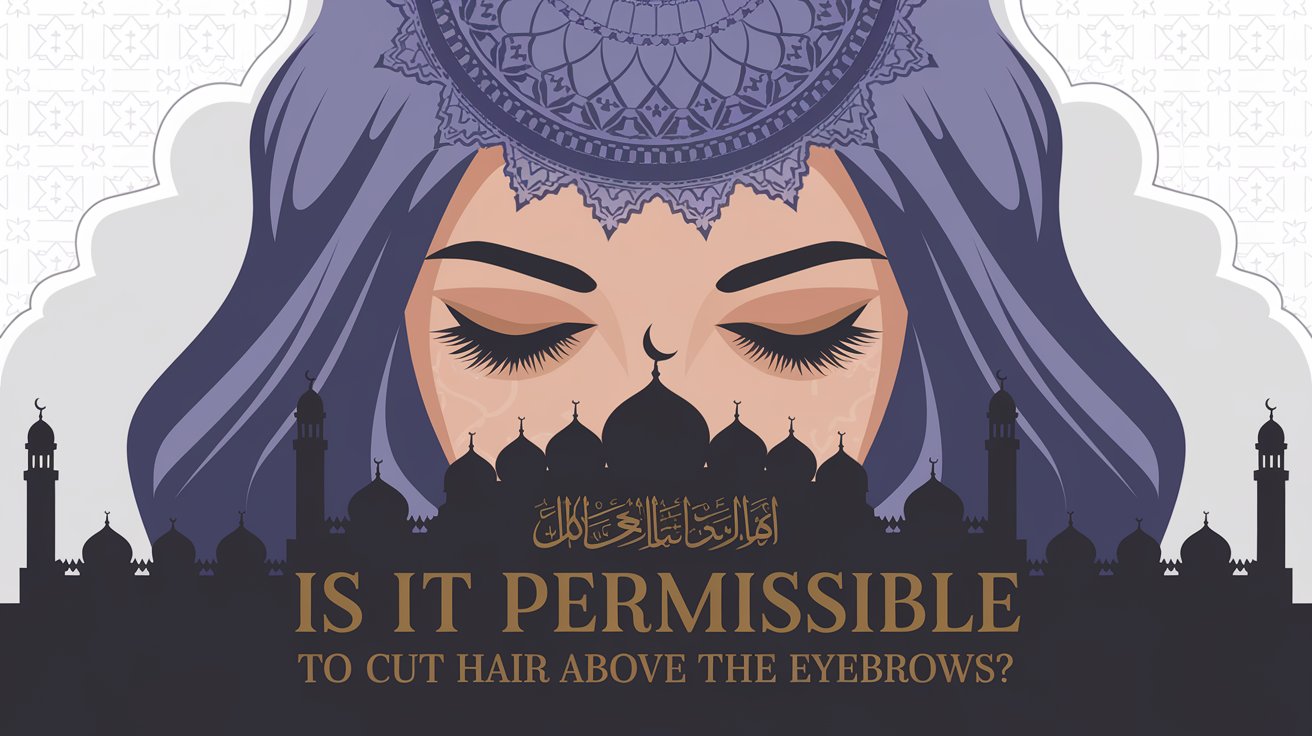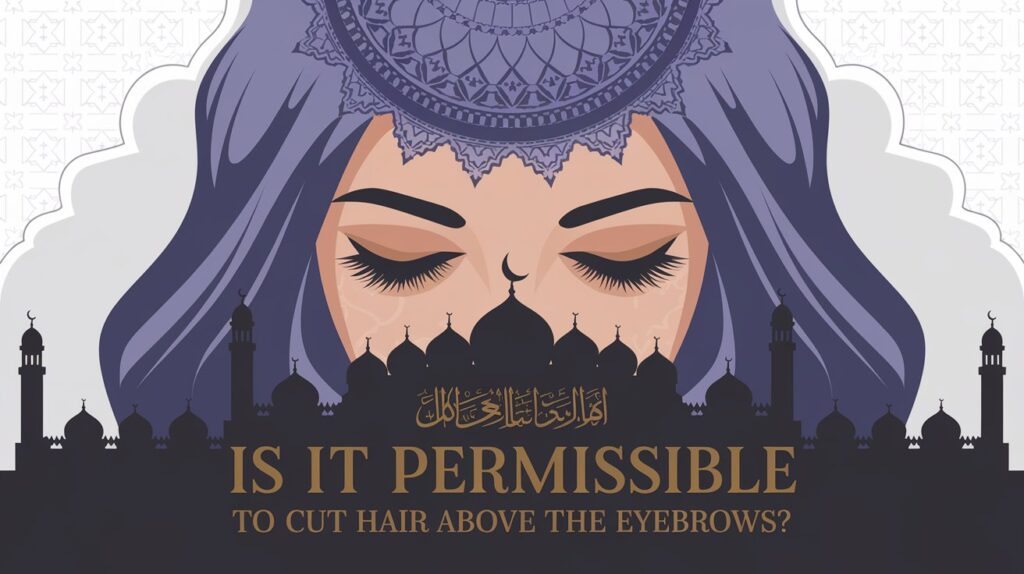In Islam, personal grooming and hygiene are highly valued. But, there are certain guidelines that Muslims must follow when it comes to hair removal.
One common question that arises is whether it is permissible to cut or trim hair above the eyebrows. In this blog post, I will tell you about this issue in light of the teachings of the Quran and Hadith.
I will discuss whether cutting hair above the eyebrows and eyebrows is allowed, if trimming eyebrow hair is haram, and which hair is forbidden to cut according to Islamic principles.
By the end of this post, you will have a clear understanding of what Islam says about cutting and trimming hairs above the eyebrows.
Is it permissible to cut hair above the eyebrows?
In Islam, it is generally allowed to remove hair above the eyebrows. The Quran does not specifically mention anything about cutting or trimming eyebrow hair. Yet, there are some hadith that give us guidance on this matter.
According to a hadith narrated by Abdullah ibn Mas’ud, the Prophet Muhammad (peace be upon him) said, “Five things are part of the fitrah (natural disposition): circumcision, shaving the pubic hair, cutting the nails, plucking the armpit hair, and trimming the moustache.” (Sahih al-Bukhari, 5889; Muslim, 257)
This hadith shows that removing certain types of hair, such as pubic hair and armpit hair, is encouraged in Islam as part of maintaining personal hygiene. While eyebrow hair is not mentioned specifically, many scholars believe that it falls under the same category.
Another hadith narrated by Ibn Abbas states, “The Messenger of Allah (peace be upon him) cursed the women who pluck eyebrows and those who have it done.” (Sahih al-Bukhari, 5931; Muslim, 2125)
Some scholars interpret this hadith to mean that removing eyebrow hair is not allowed. Yet, others argue that the hadith refers to the practice of completely removing the eyebrows, which was common among some women at the time for beauty purposes. They believe that trimming or shaping the eyebrows is permissible as long as it does not involve removing them entirely.
Most scholars agree that it is allowed to remove hair above the eyebrows, especially if it is done for the purpose of maintaining cleanliness and good appearance. But, they also emphasize that it should be done in moderation and without changing the natural shape of the eyebrows too much.
Final Words
In this blog post, we have explored the Islamic teachings on cutting and trimming hair above the eyebrows and the eyebrows themselves.
We have learned that while removing hair above the eyebrows is generally permissible, cutting or trimming the eyebrows is considered haram by most scholars. The hadith of the Prophet Muhammad (peace be upon him) cursing women who pluck their eyebrows and those who have it done suggests that altering the natural shape of the eyebrows is not allowed in Islam.
Yet, removing hair above the eyebrows for the purpose of cleanliness and good appearance is acceptable.
We have also discussed that shaving the head completely, shaving the beard, and removing the soul patch are not permissible in Islam, as these types of hair are considered sacred.
If you have any doubts or questions regarding this topic, it is always best to consult with a knowledgeable Islamic scholar who can provide guidance based on your specific situation.
As Muslims, we should strive to adhere to the teachings of our religion in all aspects of our lives, including our personal grooming habits.










